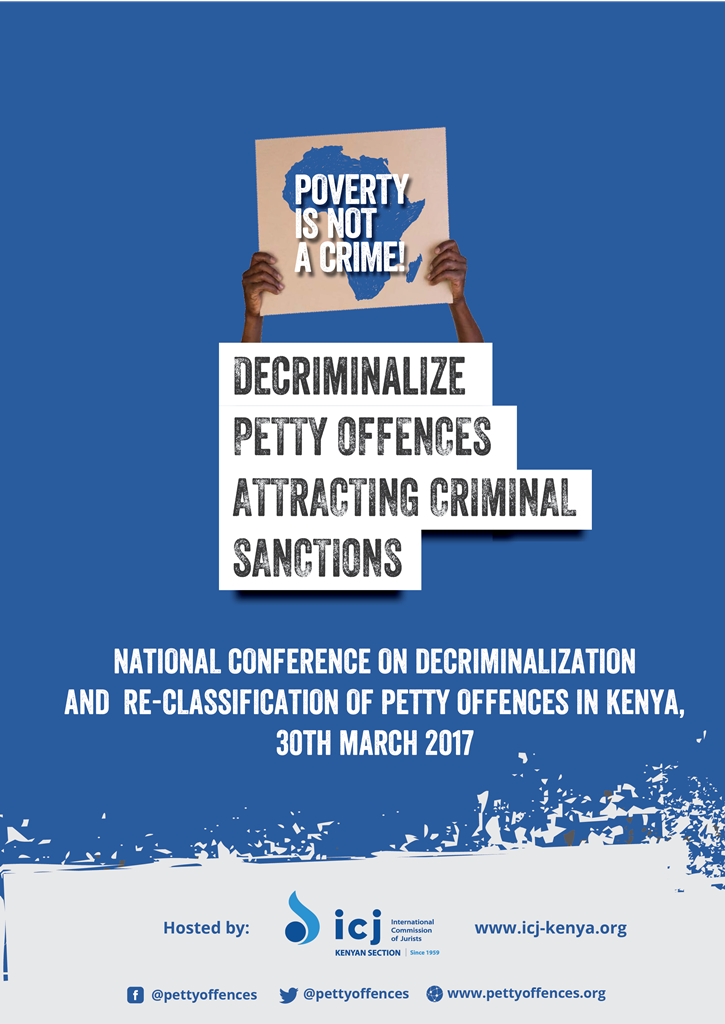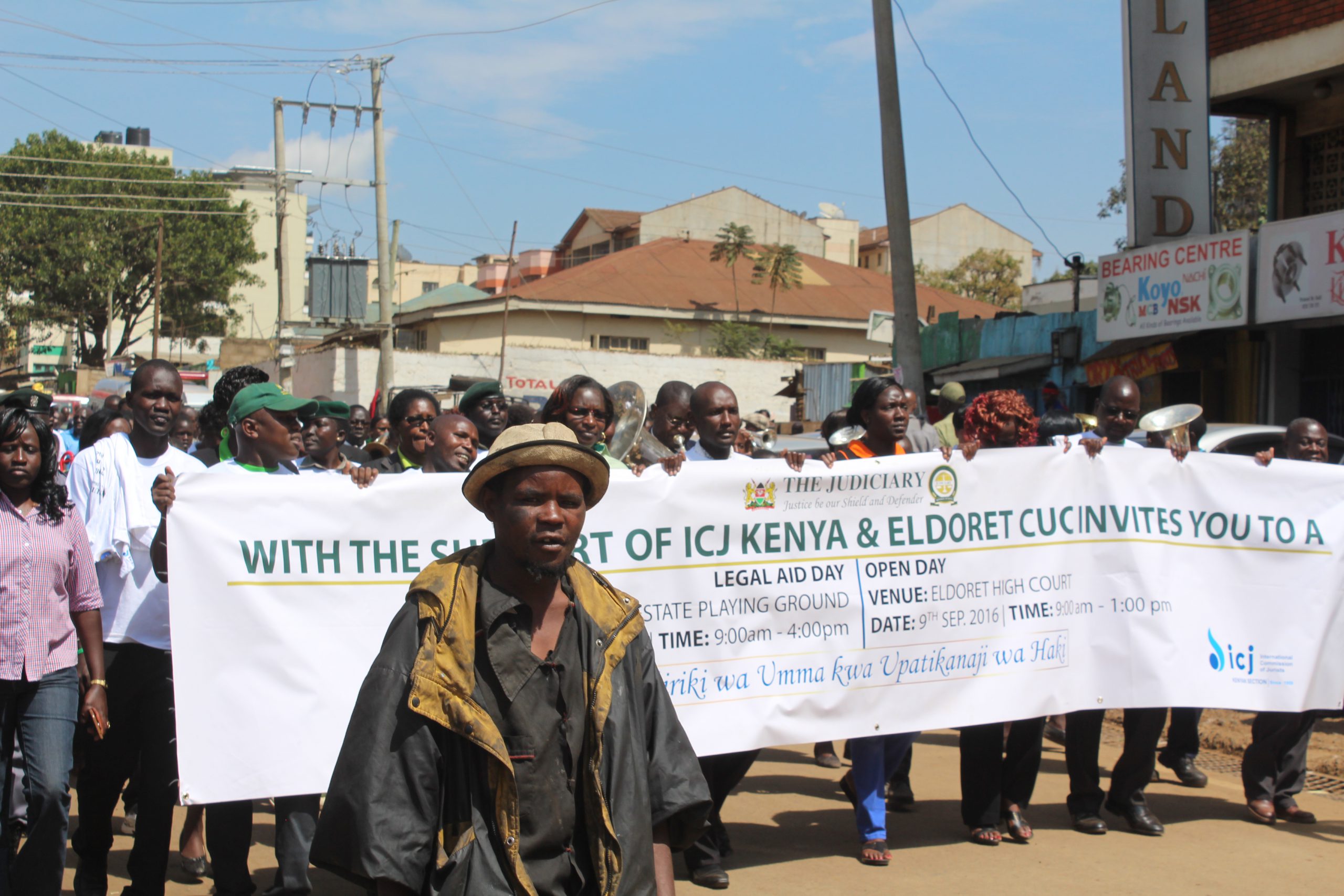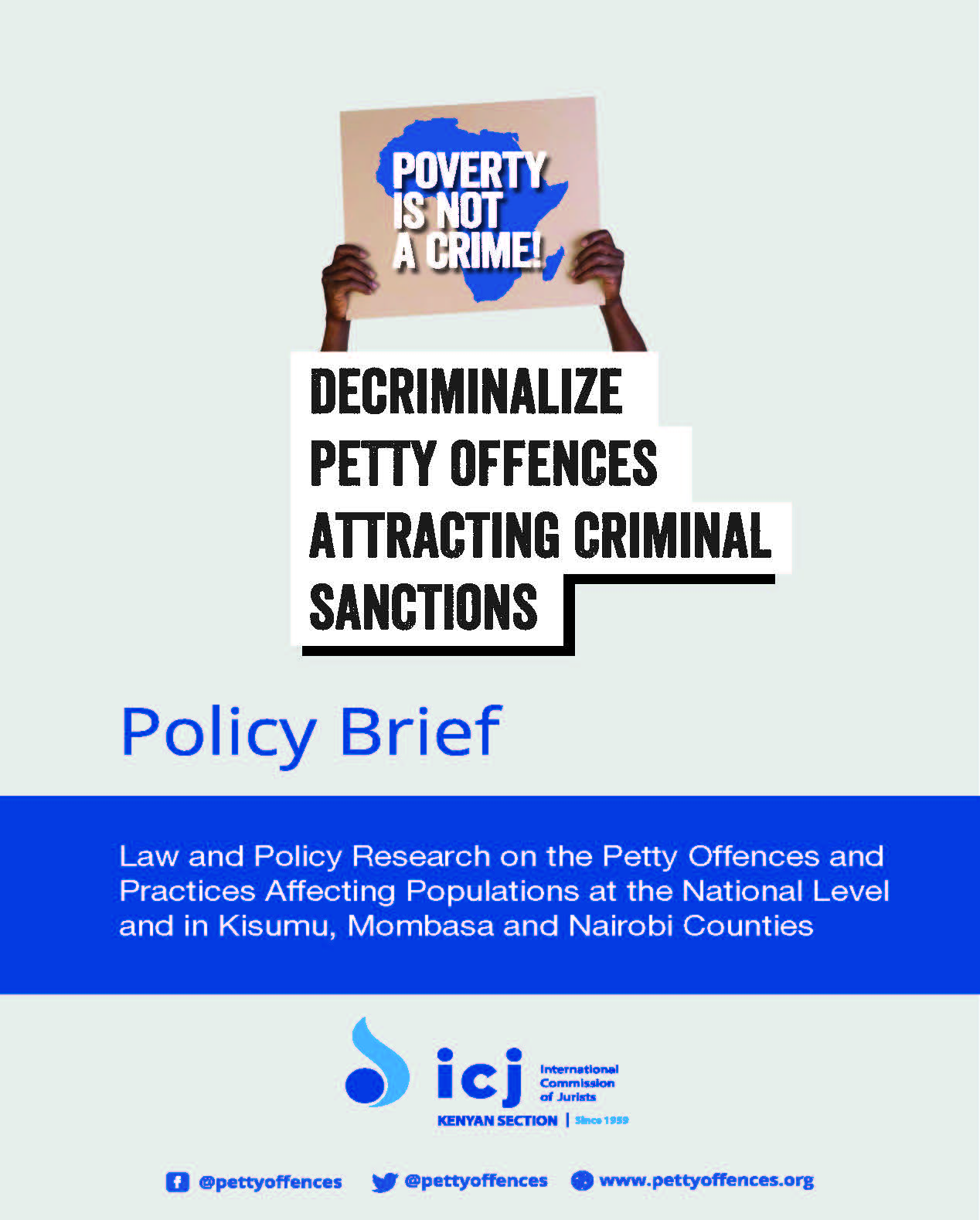NAIROBI, KENYA: ICJ Kenya together with national and regional stakeholders have been part of an elaborate advocacy and campaign for decriminalization and re-classification of petty offence in Kenya and inter African region. A Task force on petty offences was formed in Kenya with representation of each of the target groups, each implementing different strategies. The Task Force member organizations have collectively been working towards amplifying the voices of potential and actual petty offenders through a website on petty offences where stories/case narratives are consolidated and shared. ICJ Kenya has also institute a Public Interest Litigation Case seeking a declaration of the effacement of by laws that provide for petty offences as unconstitutional, since the local government Act that provided for these bi laws was repealed and counties have not generated new legislation.
In this regard, ICJ Kenya has been conducting legal research to identify gaps in legislative and policy frameworks on petty offences and practices that result in human rights abuses encountered by minority groups arising from their enforcement with a view to contribute to reform of the criminal justice system in Kenya. The research involved a legal review of the domestic and international legal framework that provide protections for human rights abuses arising from the enforcement of petty offences, analysis of the county bi-laws from Nairobi, Mombasa and Kisumu counties, and observation of the practices by actors in the justice system in handling potential and actual petty offences at different stages in the justice chain. The findings of the report are intended to inform public awareness on the issue of petty offences, identify problematic legislation and practices, demonstrate their adverse effects and thus, build and make a case before policy makers on the need to decriminalize or reclassify such offences.
The National Conference
Following the conclusion of the policy research on petty offences and practices affecting populations at national level and in Kisumu, Mombasa and Nairobi county levels, ICJ Kenya together with its national and regional partners has convened a National Conference on Decriminalization and Re-classification of petty offence in Kenya on 30th March 2016. The primary objective of the conference shall be to disseminate the findings of the research to inform discussions around the handling of alleged/actual petty offenders and the human rights violations arising as a result. The conference will also provide a platform for duty bearers to collectively deliberate on actions to be taken towards decriminalizing petty offences in Kenya and further generate the push necessary to jump-start reforms on this critical issue. Further, the conference will also provide a platform for sharing of best practices, challenges, lessons learnt and progressive steps in Kenya and by the regional partners in substantively reforming the varied legal frameworks enforced to address petty offences.
The specific objectives of the conference will therefore be to:
· Disseminate the finding of the policy research on petty offences and practices affecting populations at National Level and in Kisumu, Mombasa and Nairobi counties
· Facilitate discussions with the duty bearers on the human rights violations arising from the handling of petty offenders and the need for decriminalization and re classification of these offences.
· Share best practices, challenges and lessons by the national and regional partners in the campaign for decriminalization of petty offences in Kenya and Africa.
Target Groups for the conference
The conference will convene actors in the criminal justice system, who either directly or indirectly handle potential and actual petty offences at different stages in access to justice; Regional, National and County stakeholders who complement government efforts; and the investigative journalists that ICJ Kenya has been working with to generate investigative stories that amplify the voices of persons vulnerable to human rights abuses resulting from the handling of petty offenders.











